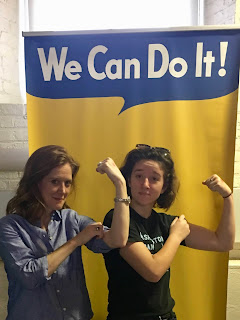Broken Trust
Trust is essential in many aspects of life. A century ago, a person’s trust relied on their handshake and their given work. Today more often, legal documents, sent via certified mail, ensure a written trail goes along with the establishment of an agreed upon action. For successful relationships and business interactions, trust remains one of the top requirements. Unfortunately, as you make your way through the ranks, you may experience a break in trust with your co-workers, leaders, and the organization. Let’s learn the importance of indicators of when you’re about to do a trust fall and no one is there to catch you.
As an individual, you can recognize when you’re being ghosted, ignored, belittled or minimized. All these examples demonstrate a lack of trust with the person you’re dealing with. This happened to me in the past when I’d requested to meet with a supervisor to discuss my future employment opportunities. A gate keeper to the decision maker kept taking my call, even meeting with me, but discouraged my direct discussion with the boss. Because I had neither luck nor timing on my side, I missed out on an opportunity to pursue a great job. This demonstrated lack of trust by this manager led to my distrust as they failed to see my excitement, drive, and potential. The failure to ensure a direct report had an opportunity to grow was a lesson to me. Lesson learned: sometimes just schedule a meeting when the toad-in-the-road isn’t around.
Broken trust with a group expands beyond the one-on-one relationship to a larger circle. Degrading trust in this matter doesn’t always occur instantaneously but rather you begin to see the cracks in the foundation. Are group meetings often shifting? Are people deliberately not taking notes or putting things in writing? Are factions occurring with small groups breaking off? If you’re experiencing these indicators you may be a part of a splintering group. This experience occurred in an organization I was a part of and the ample evidence was ignored by those who wore the crown. The “in” and “out” groups recruited for their sides. Mudslinging of all types reached a rampant stage where the finger pointing got personal. I heard people accuse others of affairs, misuse of funds, and theft. The whole group had degraded into a middle school like environment reminiscent of “Lord of the Flies.” Lesson learned: Pay attention to the hair on the back of your neck when it rises and the pit of your stomach. Indicators of fractions are viscerally felt, listen to this and act to fix or avoid those groups.
Lastly, organizational or wholesale broken trust. Evidence of this type of activity is sadly, clear to you and I through scandals and coverups occur in government, business, and religion. The hardest part of this degraded trust is that it occurs over years and is often incremental. The saying in humor/jest is truth has merit here. For example, back in the late 90s and until 2001, the company of Enron was a highly ranked Fortune 500 company. They’d hidden their shady accounting, debt and inflated profit from most of those stockholders who’d invested in them but the signs were evident. Footage of going away parties showed skits, songs, and jokes about their horrific mismanagement of funds. The organization broke the trust of thousands who worked for them, and even more so for those who’d had their pension funds tied to their stock. Lesson learned: it’s always easier to consistently check in and ask yourself if your values and that of an organization align. Do this before you’re smacked across the face with a scandal.
Broken trust by individuals, groups or organizations eat at the cornerstone of any type of work. Ensure you’re looking for signs and listening to the signals before you find yourself in an arena of disarray. As you find your greatness, steer clear of those who aren’t looking for it as hard as you are.



I've seen offices deteriorate into “Lord of the Flies.” What's the fix?
ReplyDeleteBug spray
DeleteNo really, when it starts to enter into, my favorite analogy, the Middle School Mafia wars you need to work to create change. Grabbing the attention of those with sound minds and working towards minimizing the peripherally crazy, while lifting up those who make sense works best. In every organization there's some kind of oversight. In my world, it's the Inspector General or Equal Opportunity. Work to ensure someone who is trained in mediation can come and help. Organizational psychologists are also another great help.
Delete